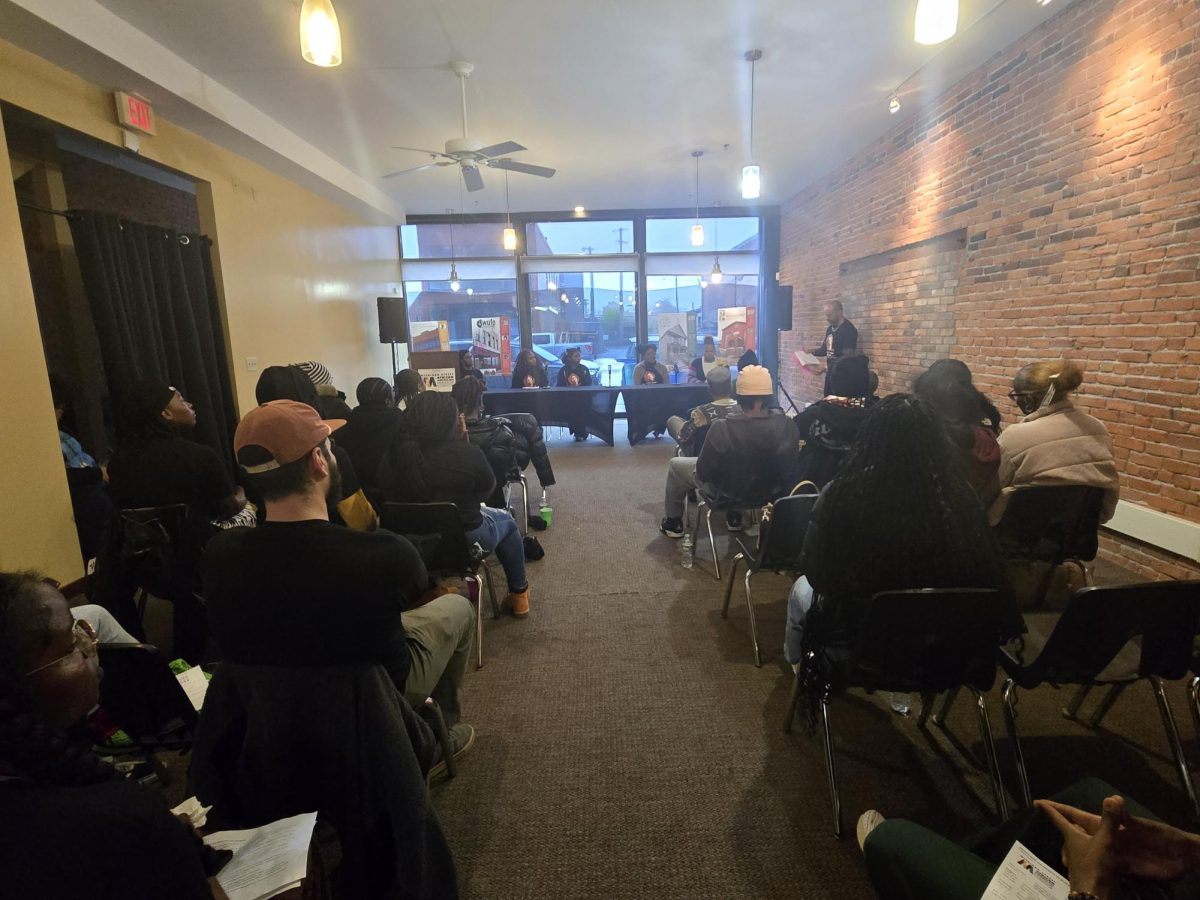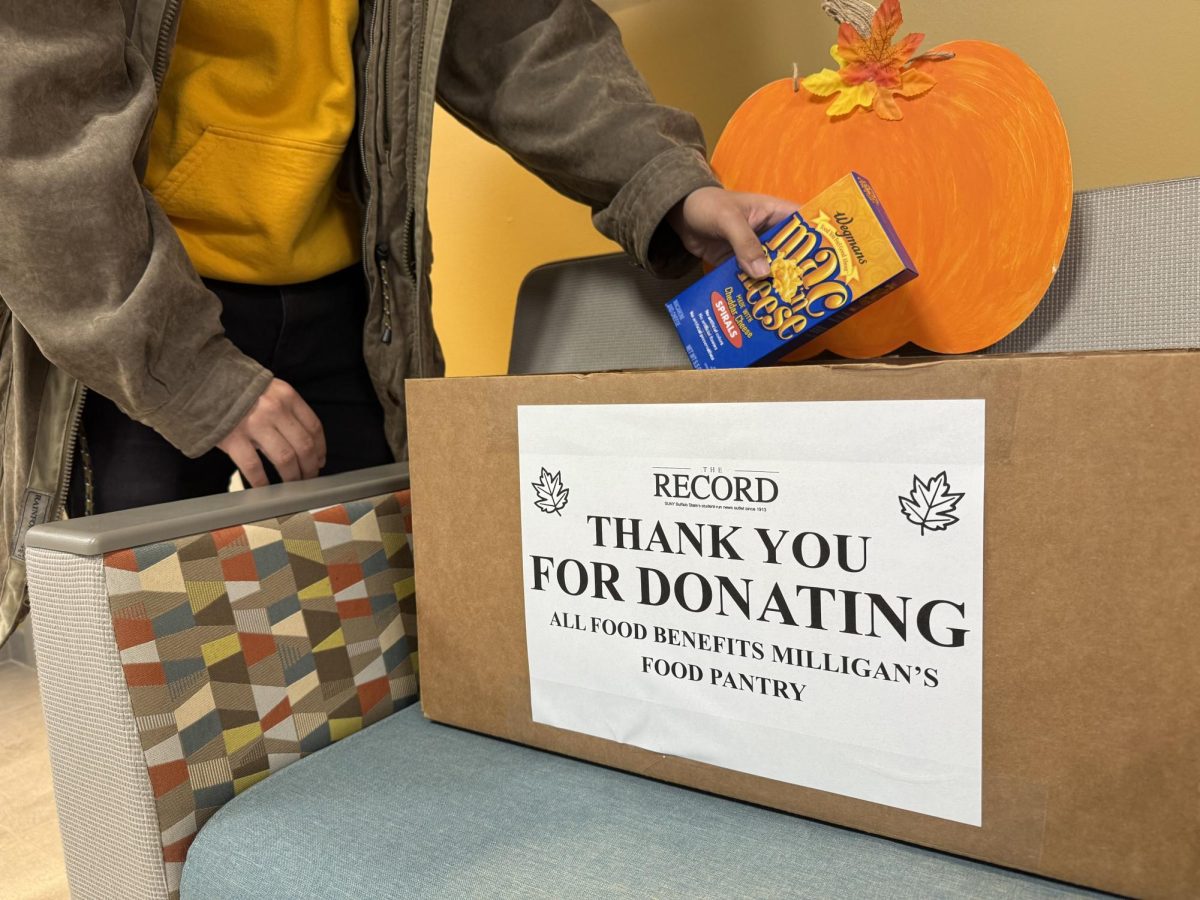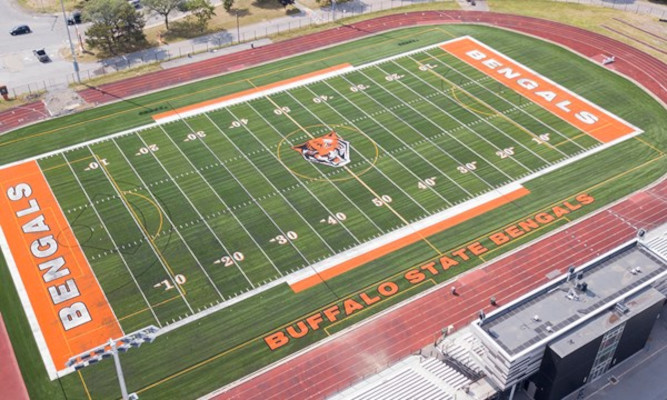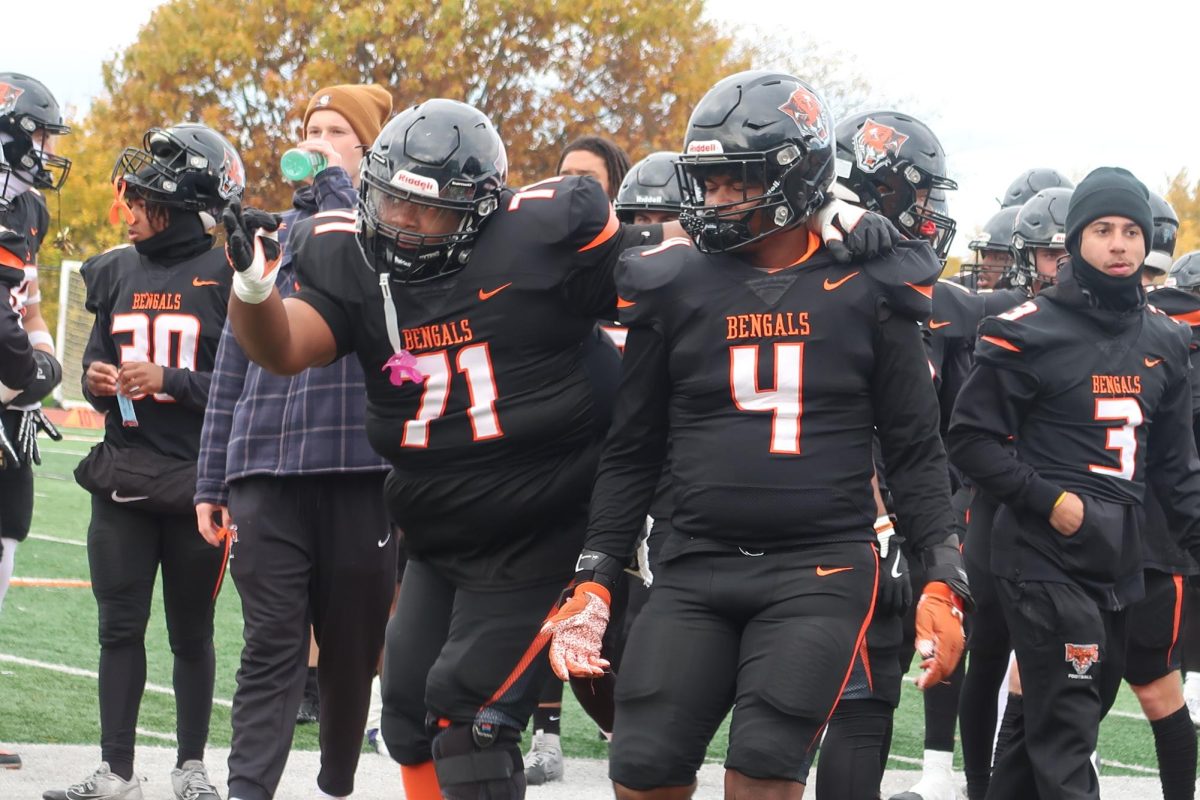Dr. Durand was appointed as Interim President for the 2023-2024 academic year. Her appointment was, then, officially extended in the month of March 2024. Dr. Durand’s extensive experience in higher education breeds an approach that is incredibly collaborative and forward-thinking.
Dr. Durand shares her student-centered philosophy as University President and provides insight into the service that she engages in outside of Buffalo State University.
This interview was edited for clarity and brevity.
1) As the President of Buffalo State University, what are two tasks that you engage in that most campus community members may not be aware of?
One task is that I’m always looking for individuals outside of the Buffalo State community that I can talk to, cultivate, engage, and determine how they can best help us. I attend a lot of breakfast and lunches, but it’s not just eating: It involves meeting people, and getting to know what their interests are. Then, I try to figure out if I can align their interests with some of the needs at Buffalo State in a way that will help us grow and help us flourish.
The other task is that I am thinking about Buffalo State University. 24 hours a day, seven days a week. Some of my best ideas come when I’m brushing my teeth in the morning; I’m always thinking about issues and activities that are happening at Buffalo State. When you’re the university president, thinking about the University never turns off. When I engage in daily tasks such as walking across campus, attending meetings, engaging with students, staff, and faculty, or attending a sports or club activity, I’m thinking about if this what we want to do, if this is moving the campus along, and if this helping our students grow and develop.
2) What is one of the most challenging aspects of your role as a University President? Why might this be the case?
The most challenging role as a university president is managing the financial resources in order to get the best outcome, and to produce the best product for our students. This is important because we’re in an era in higher education where we probably need to rethink a lot of the strategies and structures that have been in place for decades and determine whether those are structures that we should continue to work with.
Our finances were impacted due to the COVID pandemic, and the fact that our student populations that generate much of our revenue have changed their minds about living in large communities and traveling away from home.
Buffalo State is one of 64 institutions that’s managed under the same umbrella. All 64 institutions under SUNY are different with unique needs; it’s difficult in a system that large to be able to address everyone’s individual needs. Sometimes, a policy emerges, or you get a process, or an allocation based on the needs of other SUNY institutions.
We’re the only comprehensive college that sits in the same city with a Research 1 institution and about 20 other colleges and universities. That’s unique to us in Western New York. And the other thing is we sit in the heart of a city. That’s not necessarily the case for some of the other comprehensive colleges that we’re compared to. Since we sit where we do in the middle of Buffalo, we are Buffalo’s University, and the Buffalo community expects more of us. We have folks that come in to visit the Performing Arts Center, or to visit the Burchfield Penney Art Center. Some folks come in to go to the bookstore and have a coffee, or go to the library and use our resources there. We’re more of a city resource than many of the other comprehensive colleges that were compared to so.
Still, finances are a major focus. Buffalo State needs to keep the lights on, and we have to get the snow plowed. We have to pay folks a fair wage.
3) How might you describe your philosophy and approach to the role as University President? How would you suggest your overall philosophy in said position is reflected in your decision-making process?
Our job as a university is to help educate, grow, and develop the next generation of citizens and leaders. Higher education was established with Harvard University, primarily to train the clergy and the government leaders. We still have that same philosophy of developing leaders and developing good citizens. However, it’s a much broader group of professions now than it was in the past.
I tell my staff from top to bottom: our primary goal is the success of our students. We want to recruit students that are ready to be able to be trained in various professions. We may not be creating doctors and lawyers, but we are creating the middle class here in the Buffalo area. Around 80% of our alumni stay and work in Western New York.
With every decision that senior administrators and I make, the first thing we must consider is: how does this decision affect our students?
Things like when we need to take a parking lot offline to revamp it to deciding that a building needs to be rehauled are examples of decisions we may need to make. And if we take it offline to do that: how is that going to impact where the students’ study, work, and live? My philosophy centers on what is going to be the best for the students.
A primary concern is: how are we going to equip our students with the tools, the knowledge, and the skills needed to go out into the world and be good citizens who contribute to society in different ways? Not only in their profession, but also in their advocacy for their communities and for society. Ultimately, my students are always first.
4) Outside of your role as President of Buffalo State, what is one activity you enjoy engaging in?
It’s one activity in multiple groups, and that is, service to the community working in the community. I am a member of the Board of Christian Education at my church. It’s still for students, but I work there to support the education programs and to work on after school programs. At one time, we had a high school, and I was part of that board. I’m doing community work through my church.
I have two community organizations that I’m very involved in. One is my sorority; I’ve been in the sorority now for 58 years, and it’s Delta Sigma Theta sorority. We do public service; we do social action. Right now. we’re deeply involved with voter education, including voter registration and mobilization. We do not advocate for one candidate over another, but we do want to make sure that the communities where we live and work have all the information they need to make an informed vote. We do a lot of after school programs. We do a lot of women’s and men’s programs. A few years ago, we took on a program where we started to help. We started to work with young men, especially those in grades 7 through 12. We can do after school programming, and we realized very quickly was as women, we probably weren’t the right people to be working with the men. So, we had to solicit some help from some male groups to help develop these students and give them some good life skills and out-of- classroom experiences.
I’m also a member of Links Incorporated. This organization started with some women in Philadelphia in 1946, who just wanted to be able to give to people in their communities. They did different kinds of service. And set up food kitchens to help people. They also planned educational programs, and raised money for scholarships. Here in Buffalo, my chapter includes about 30 members. We realize that one can’t be friends with 100 people, but can manage 30 or 40. And so, we do similar things for the community. We do a lot of work in scholarships, especially because we believe in higher education and education beyond K through 12 in both of my groups. Most of the members are college educated.
The nice thing about it is that I can incorporate my role at Buffalo State into my other roles. For instance, if I am working with a student that’s interested in learning more about politics, I’ve probably got a sorority sister or a linked sister that is either a judge or working in in City Hall. I can connect them that way.
At my church, often, students are not at home. They’re from out of town. At church, sometimes I’ll get together and we’ll bring students to the church. They’ll have the church service, and then we may have a meal. Or, I might take them to see a musical group; I’ve done that where I perform the music for that particular Sunday, so I try to combine them both. I’m getting the most out of everything. Those are the things that I do and I enjoy outside of Buffalo State.







